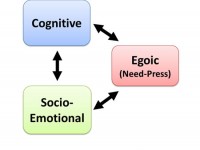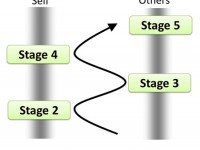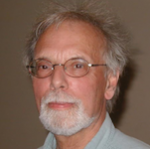This course introduces students to a widely acclaimed, holistic perspective on both individuals and teams. It is an overview course focused the three perspectives in which CDF-users view clients: the social-emotional, cognitive, and psychological one. Insight into these dimensions stems from decades of validated research since the 1970s but has not been widely taught in a unified fashion. In the course, emphasis is placed as well on the interrelationships between the three dimensions since they closely interact in coaching as well as consulting. Based on this course, students become eligible for all other CDF courses. Read more Read More...
Tag: CDF
Introduction to Developmental Work with Teams
This course introduces team leaders and team coaches to fundamentally new ways of understanding the nature and behavior of teams, with the goal of re-shaping team dynamics. In the course, two main processes are distinguished: interpersonal and task process. Their balance is thought to define team maturity. The purpose of the course is twofold: to change coaches’ perception of teams based on social-emotional insight, and to give them new, dialectical, dialog tools for supporting team members’ interpersonal process and for strengthening their task process. Team maturity and different modes of team leadership are central course topics. The methodology taught goes far beyond purely the behavioral approaches now used, focusing on team members’ developmentally shaped frame of reference on account of which they collaborate in the team and view the organization they art part of the way they do. Students will be asked to submit a concise description of a team they are working with; their descriptions will provide the focus around which CDF tools are introduced and practiced in class. The study cohort itself will serve as a team to practice on. Read more Read More...
Socio-Emotional Development
The essence of the socio-emotional dimension has to do with how adults differ in making meaning of their life and work experiences based on their opposing and intertwined needs of being autonomous and being included in a community of others. These two lifelong tendencies achieve a different balance at every developmental “stage”. Social-emotional differences between people manifest not only in their “thinking”, but since thinking precedes acting, also in their goal setting, decision making, and, most directly, in the relationships individuals develop with others. In this life-changing course, students learn in depth not only the theory of social-emotional meaning making as developed by the Kohlberg School at Harvard, but acquire the practical skills of using what they learn, whether in making cogent assessments, giving cogent feedback, coaching, or consulting. Read More...
From “Developmental Theory” to a Dialogical and Dialectical Epistemology
By Otto Laske - In this text, I focus on the central relevance of interviewing skills for being able to lead a structured developmental dialog in the sense of the Constructive Developmental Framework (CDF), whether social-emotional or cognitive. I want to make it clear that the certification as a Master Developmental Consultant/Coach at the Interdevelopmental Institute (IDM) is not a certification in practicing “developmental theory”, but rather an independent discipline derived from it, namely, a dialogical and dialectical epistemology. Developmental theory per se is taught at IDM only in applied courses which serve as a basis for learning the CDF epistemology, and in this sense are mere teasers for learning to think and listen developmentally, dialogically, and dialectically. What matters is not the theory, but its applications in work with human resources (“human capital”). This has always been the focus of IDM teaching. Abbreviations: CDF = Constructive Developmental Framework (Laske); DCR = Dialectical Critical Realism (Bhaskar); DSF = Dialectical Schema Framework (Basseches); DTF = Dialectical Thought Form Framework (Laske); IDM = Interdevelopmental Institute (Laske). *** When I started writing my two books on Measuring Hidden Dimensions in 2005, it was clear to me that the most progressive part of Kegan’s... Read More...
Otto Laske on his work
An interview by Paul Anwandter Read More...
Constructive Developmental Framework (CDF) – Ungekürzter Wikipedia-Artikel
Von Bruno Frischherz - Das Constructive Developmental Framework (CDF) ist eine psychologische Entwicklungstheorie und das entsprechende Assessmentinstrument, das auf empirischer Forschung beruht. Der CDF-Methodologie liegt die Annahme zugrunde, dass jedes Individuum sich aktiv eine eigene “Welt” konstruiert, die von anderen Weltmodellen verschieden und lebenslang im Entstehen ist. Die CDF-Methodologie umfasst drei Assessmentinstrumente, je eines für die sozial-emotionale und kognitive Entwicklung einer Person, und eines für das psychologische Profil. Die CDF-Methodologie kommt überall dort zur Anwendung, wo es darum geht, Erwachsene bei ihrer lebenslangen Entwicklung zu unterstützen. Die Methodologie wird am Interdevelopmental Institute (IDM) in verschiedenen Programmen unterrichtet. Die empirische Grundlage der Methodologie gründet in der Forschung, die vor 40 Jahren an der Kohlbergschule begann. Diese Methodologie wurde seit 1998 durch Otto Laske durch das dialektische Denken der Frankfurter Schule und Hegel’s Philosophie erweitert. Diese Erweiterung zeigt sich vor allem darin, dass CDF strikt zwischen sozial-emotionaler und kognitiver Entwicklung unterscheidet und beide empirisch in Beziehung zueinander setzt. Download: Frischherz_2012_Constructive_Developmental_Framework_CDF_Wikipedia Read More...


